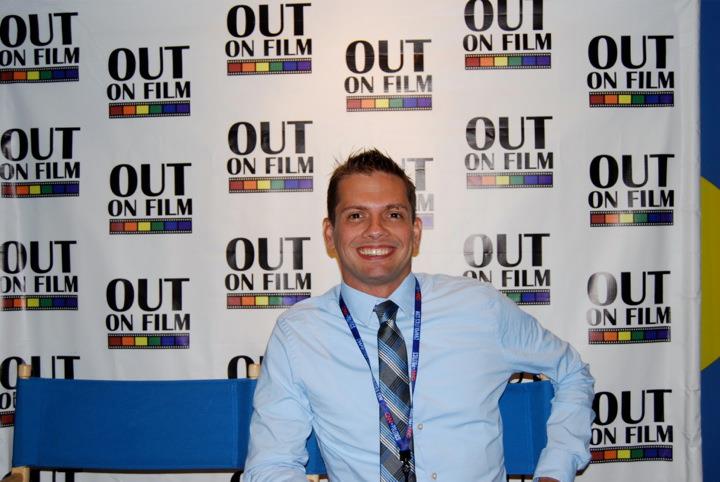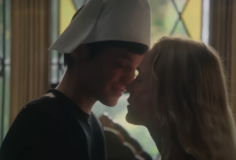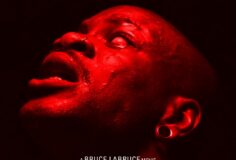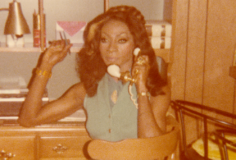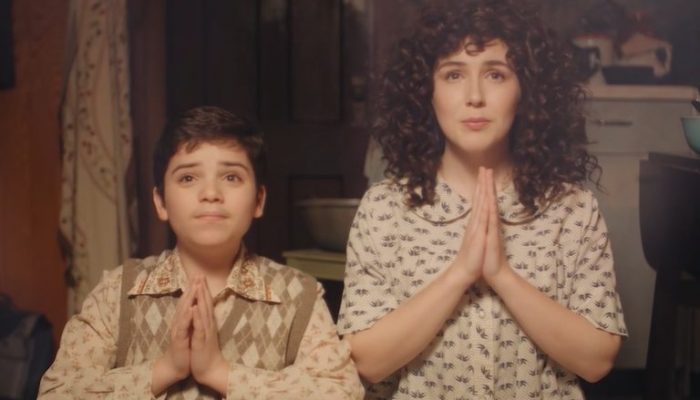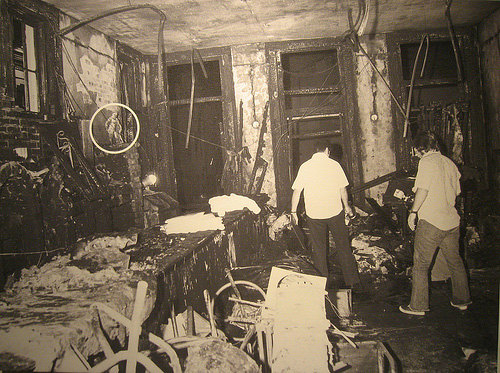
The Upstairs Lounge Fire that killed 32 people in New Orleans in 1973 is the subject of a new documentary by filmmaker Robert L. Camina.
I first met filmmaker Robert L. Camina in Austin during the Gay and Lesbian Film Festival. I was premiering my “Waxie Moon” documentary while Camina had a hilarious drag musical in the program, called MARTINI THE MOVIE . Since then Camina produced the critically acclaimed documentary RAID OF THE RAINBOW LOUNGE and is currently working on shining a spotlight on another important event in gay history, the 1973 arson of the New Orleans’ gay bar, The Upstairs Lounge which resulted in the death of 32 people. That documentary, titled UPSTAIRS INFERNO, is currently seeking funding through a campaign on IndieGoGo. (Editor’s Note: the goal has been reached, but additional funding is always welcomed by filmmakers!)
Wes Hurley: What has been your journey to becoming a filmmaker?
Robert L. Camina: I’ve had a camera on my shoulder since I was around 5 years old. Throughout high school and college, I made videos for classes and clubs. After graduating from the University of Texas in San Antonio with a B.B.A. in Marketing, I moved to Dallas to pursue a marketing career. Despite the success, the career left no time for my true passion: film making. I left Corporate America to pursue the art full time. While studying at the New York Film Academy, I directed my first official short film, HUNTER4LOVE. The comedy screened at 12 film festivals. I later produced two promotional videos for The Dallas Theater Center, which garnered two Telly Awards. My second short film, MARTINI THE MOVIE debuted in 2009, played at 10 film festivals (including the Seattle Lesbian & Gay Film Festival) and won several awards. In a matter of weeks following MARTINI THE MOVIE‘s debut, my life changed when the Rainbow Lounge was raided. Outraged and hurt, I decided to use my film making skills to help raise awareness and hopefully turn a tragic event into teachable moments. With that decision, I began working on RAID OF THE RAINBOW LOUNGE.
WH: How much did you know about the Fort Worth raid when you started your film?
RLC: I started making the film in a matter of hours after the raid. While I was not at the Rainbow Lounge that night, I had many friends that were there. During the late morning and early afternoon, the facts surrounding the raid were unclear and the future was uncertain. However, my instincts told me that I needed to capture what was happening on video and potentially create a short film. Little did I know, that decision would define my life for the next 2.5 years.
Over the next few months, the story grew. It was quickly apparent that this project wouldn’t be a short film, but feature length. I set out to interview on camera as many witnesses and key players as possible. I attended almost every single event related to the raid, camera in hand. Ultimately, I was able to interview over 35 people, and record over 50 hours of rallies, city council meetings, counter-protests and more. I was witnessing history unfold before my eyes and I felt a sense of responsibility to the community to tell this story. I was determined not to let the traumatic event and its inspiring legacy fade into the past, reduced to folklore. Minds and attitudes are changed one at a time. I felt if I could prevent one person from bullying, discriminating or using violence against members of the LGBT community, it would be a success!
WH: Do you feel like it was a learning experience for you as well as the audience?
RLC: It was a wake-up call for me and I think it is for the audience as well. I think it’s important for people to realize that events like what happened at the Rainbow Lounge are still happening in our lifetime. This is the kind of world members of the LGBT community are forced to live in: a world flourishing with fear, homophobia and intimidation. However, in the wake of the raid, Fort Worth city leaders and members of the LGBT community ultimately took significant steps to create a better world for all its citizens. Fort Worth is now a leader in LGBT equality! I hope this film inspires people to get involved in their own community. While city leaders need to be held accountable for the safety and well being for all the people they represent, members of the community also need to speak up and initiate change.
WH: What has been your proudest achievement(s) because of ROTRL?
RLC: I am very proud of the IMPACT and reach this film has had in a short amount of time. I hoped that this film would make a difference and it looks like it has. That is incredibly rewarding in and of itself. On a personal level, I would have to say a highlight was receiving an invitation to the 2012 White House LGBT Pride Month Reception and greeting President Obama. I never imagined I would meet the President of the United States. Other highlights included meeting U.S. Attorney Eric Holder and Valerie Jarrett (Senior Advisor to President Obama) in March 2012 and receiving an invitation by the U.S. State Department to screen RAID OF THE RAINBOW LOUNGE to a delegation of 16 visitors from all over Europe participating in the State Department’s International Visitor Leadership Program (IVLP) focusing on “Advocating for Human and Civil Rights for the LGBT Community”.
I was also incredibly honored when the North Texas U.S. Attorney, Sarah Saldana personally invited me to speak and screen RAID OF THE RAINBOW LOUNGE at the office’s inaugural LGBT Pride Month Diversity Program. The documentary has screened over 40 times, including 28 mainstream and LGBT film festivals, and has won many awards along the way. This includes four “Best” Film and three “Audience Choice” Awards. I am thrilled that the RAID OF THE RAINBOW LOUNGE film festival screenings have not only created awareness and inspired communities across the country, but have also helped build bridges between local LGBT communities and their law enforcement/city leaders. I’m grateful that we are able to partner with film festivals to provide forums for LGBT communities and city leaders to have vital discussions!
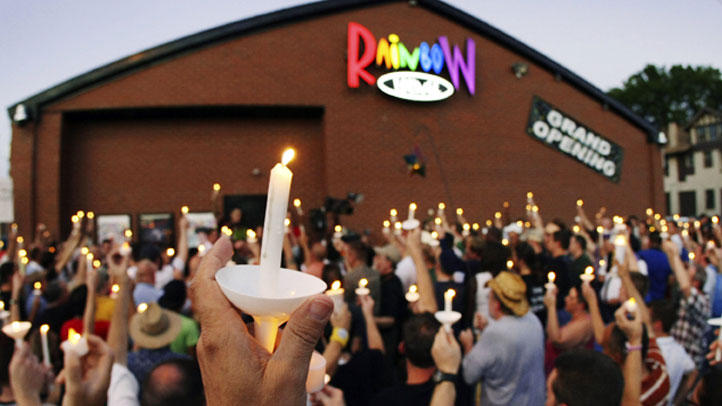
Fort Worth Texas’ Rainbow Lounge was the subject of an award winning documentary, “Raid on the Rainbow Lounge” by Robert L. Camina.
WH: Any reactions from the audience that particularly affected you?
RLC: The RAID OF THE RAINBOW LOUNGE screening in Atlanta was the most emotional since our premiere in Fort Worth. There were so many tears. You see, 10 weeks after the Rainbow Lounge raid occurred, a similar raid happened at the Atlanta Eagle. Many of the Eagle patrons and staff who experienced the horrific raid attended the screening and participated in the Q&A following the film. It reminded us that we should never lose sight of fact that these violent bar raids are still happening and healing takes time.
WH: The first film I saw you make was MARTINI THE MOVIE, a cheerful drag musical short. Nowadays you’re making documentaries that capture important (and tragic) moments in LGBT history. Do you see yourself coming back to narrative film making at some point?
RLC: At some point, I DO want to return to narrative films. I think sometimes you find a project, and sometimes a project finds you. In this case, the UPSTAIRS INFERNO documentary found me. After tackling such heavy issues with RAID OF THE RAINBOW LOUNGE , I had every intention of changing the pace and making a lighthearted, “fun” narrative movie. That all changed when I heard about the Upstairs Lounge tragedy. I feel like I am in the right place at the right time to make a difference.
That being said, I really hope to do something a little more lighthearted as my next project. 🙂
WH: As an artist, what have been the biggest differences for you in making a documentary vs a narrative film?
RLC: With a narrative film, you go into production knowing your beginning, middle and end. With RAID OF THE RAINBOW LOUNGE, my biggest challenge was that I was in the middle of the storm and had to be prepared to instantly follow the events as they occurred. As I mentioned, I learned about the raid a few hours after it happened. Fortunately, I had just finished a project (MARTINI THE MOVIE) a few weeks before, so my schedule was empty and my equipment was at my fingertips. No one knew what was going on. Therefore, we did not have the luxury of planning or pre-production. It was frantic. With my camera in my hand, I followed the action, keeping very alert. I knew that I would eventually want the audience to experience the chaos, anger and fear that everyone was feeling. I wanted to get as many interviews completed as close to the raid as possible. That would prevent interviews from being tainted by the press or word of mouth. While it was occasionally a struggle, getting the interviews so soon after the raid captured absolute raw emotion. The tears, the frustration the anger, the anguish – those were honest emotions and the audience needed to see that. As a result, I think they better understand how traumatic this was to the people involved and the story is stronger.
However, since we were in the middle of the storm, I didn’t know how the story was going to play out. I knew it could end in many different ways. That was a huge challenge. That meant I had to do exponentially more work and research. The interviews had to cover ALL the topics I was considering for the story. Unlike a narrative with a script, the unpredictability was unnerving.
In addition, I want my documentaries to be fair, accurate and responsible. That means the content of the film needs to be thoroughly researched and fact checked. I don’t want the films to be dismissed as “propaganda” and I do what I can not to perpetuate popular mistruths. With RAID OF THE RAINBOW LOUNGE, I meticulously compared each on camera interview with the interviews conducted under oath. If witnesses made allegations that weren’t under oath, I didn’t use them in the film. That was also a VERY tedious challenge.
WH: What’s your hope with UPSTAIRS INFERNO?
RLC: On gay pride weekend in 1973, a gay bar in New Orleans called the Upstairs Lounge was fire bombed resulting in the largest gay mass murder in U.S. history. 32 people were killed. The lack of compassion and response by the general public, government and religious leaders disturbs me. Despite the massive casualties and historic significance, the tragedy was largely ignored by the national media and it quickly faded from local headlines. In the 40 years since the tragedy, the Upstairs Lounge story has been largely forgotten and unacknowledged, even by LGBT media. That, in and of itself, is its own tragedy.
When I heard about this tragedy, I asked myself the question “Why isn’t this story more prevalent in our culture? Why don’t we know about it? It’s as historic as the Stonewall Inn raid, but it doesn’t exist in the common LGBT history narrative. That needs to change. It’s time to bring this to a national and international audience, and that’s what I intend to do with UPSTAIRS INFERNO. I am sure you will agree, that it is crucial to acknowledge, preserve and honor our history as LGBT people. The LGBT dialogue has changed SO much in the past few years. As popular attitudes shift on LGBT issues, we risk losing the stories of the struggles that got us where we are today. It’s our responsibility to preserve and honor the memories of those who came before us, including those who died at the Upstairs Lounge.
Through RAID OF THE RAINBOW LOUNGE, I’ve built trust, respect and substantial credibility. We have experience and a proven track record for creating documentaries that make a difference. UPSTAIRS INFERNO will take us on a journey that will educate, enlighten and hopefully lead us to new revelations and possibly some closure.
WH: How did you find out about this event in the first place?
RLC: After hearing about the success and impact of RAID OF THE RAINBOW LOUNGE, David Golden, a Louisiana native (and Associate Producer), approached me with this heart breaking story. From that moment, I was hooked.
WH: What have been the New Orleans’ gay community’s reactions to your plans of making this film?
RLC: I went to New Orleans for the 40th Anniversary Memorial Services. While I was there, I met with community leaders who were incredibly supportive of our full length film. They’re excited about our efforts to create a thorough, heartfelt and well rounded exploration of the events surrounding this tragedy.
WH: How can someone help get this film made?
RLC: I am anxious to tell this moving story! However, we do need help getting the film made. An IndieGoGo fundraising campaign for UPSTAIRS INFERNO is in progress through August 4th at: http://igg.me/at/
There is also a Paypal link on our website www.UpstairsInferno.
*************************************************************************************
Wes Hurley is a Seattle based filmmaker, writer, and performer. His films “Waxie Moon” and “Waxie Moon in Fallen Jewel” have played in film festivals around the world. He is currently working on multiple projects including a script for a new feature film.


